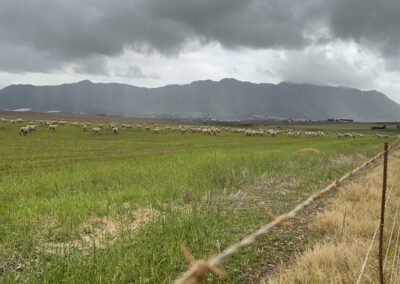The climate is hot, both literally and figuratively! Consumers are also increasingly taking up the cause, according to various market surveys and opinion polls. Companies are slowly but surely responding to this with climate neutral products and services. Companies also want to take responsibility for their own climate impact. They see it as an opportunity to set themselves apart in the market or to create added value for their brand.
By: Mark Huis in ‘t Veld, Senior Carbon Advisor
Sustainability is becoming an increasingly important consideration for consumers when they purchase a product. A report on certified retail labels showed that supermarket sales of products with an independently verified sustainability label increased by 20% in the first half of 2018 to almost 2 billion euros. Compared to the regular supermarket growth of 2.6% in the same period, products with a sustainability label are clearly gaining market share. The highest growth (32%) was attained by the Beter Leven (Better Life) Label, particularly for processed meats. The range of these labels has been greatly expanded. The percentage of products with a quality label is substantial, with fish (67%), meat (30%) and coffee and tea (35%) at the forefront. Guaranteed sustainability is therefore increasingly becoming the norm instead of a market segment for a small group of conscious consumers.
The Climate is Important for Consumers
Research by Motivaction into ‘Our Purchasing Behaviour and the Climate’ shows that the majority of consumers are concerned about climate change and that they realise that the products they buy in the supermarket every day influence the climate. That is why two thirds of Dutch consumers want the climate impact of a product to be stated on the packaging. And no fewer than three quarters want companies to make their products climate neutral. The claim that a product is climate neutral must be verified by an independent label. However, buying climate neutral products is often difficult to do. At least two thirds of consumers indicate that they are not familiar with these products in the supermarket. The range of climate neutral products is still limited.
Climate Neutral Coffee in the Lead
Although the supply is still well behind the demand, there has been a sharp growth in climate neutral products in recent years. Various climate neutral products have been available for many years, such as LED lighting from Signify, cat litter from Sivomatic and carrier bags from supermarket chains Coop and Deen. But those were just a few random products. In the past 2 years, this has changed. Now we can really see a breakthrough for climate neutral products in the Netherlands. Coffee is at the forefront, both in the B2B market, with companies such as Bidfood (formerly Deli XL), Hesselink Koffie, Makro, Redbeans and Van Zelst, and in the B2C market, with companies such as Coop, Plus and Spar. They all offer their full range of private label coffee (and tea) as climate neutral. The share of climate neutral coffee in the Netherlands has therefore risen to well above 5% in two years, comparable to the share of fair trade coffee!
Tropical Crops are Already Suffering from Climate Change
It is not surprising that coffee is leading the way. Sustainable coffee in the Dutch supermarket goes back to 1988, with the introduction of fair trade coffee, which was followed by organic and UTZ coffee. In this sense, climate neutral coffee is the next logical step on the way to 100% sustainable coffee. In addition, climate change has a significant negative impact on coffee production. Rising temperatures and changing precipitation patterns lead to an increase in diseases and a reduction of the production area, driving the production of coffee higher and higher up the slope. According to the Climate Institute, we will lose 50% of the global coffee area by 2050 if CO2 emissions are not drastically reduced. And finally, coffee itself naturally also has a significant impact on the climate. The annual worldwide production of about 9 million tonnes of coffee is responsible for the emission of about 36 million tonnes of CO2. That’s equivalent to 130 billion kilometres driven by car!
Climate Neutral Purchasing is Becoming the Norm
Following the way shown by coffee and tea, several other climate neutral products and services have recently come on the market: Nedal aluminum light towers, Halo Green Cup coffee cups, Polygon damage repair and Sivomatic’s cat litter to name a few. We are currently observing an increasing demand from the packaging industry. Expanding the availability of products will be decisive for the success of climate neutral products in the market. The consumer is ready for them!



